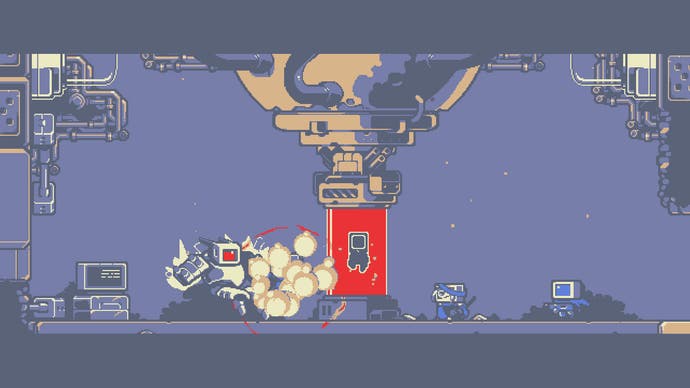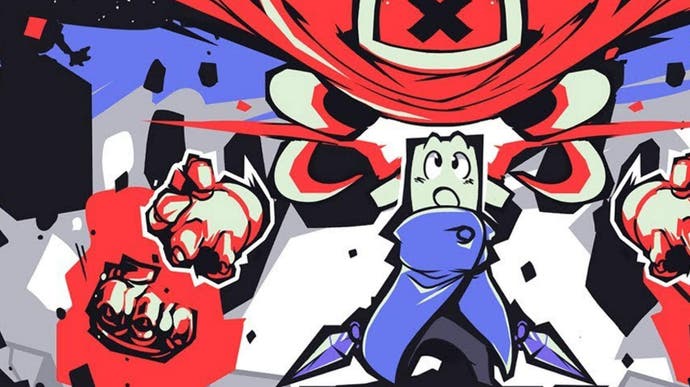Kunai review - not the greatest Metroidvania, but a good reminder of what makes Metroidvanias great
Grapple juice.
Don't judge this on its premise alone. Kunai, which has just come out on PC and console, is a cutesy Metroidvania with a knowingly primitive palette and pixel art style. You'd be forgiven for falling asleep halfway through that sentence - I had to have a little nap myself as soon I typed that dreaded M word - but Kunai deserves more than that. Judge it by its toys and then you've got something worth paying attention to.
These things are exquisite. Kunai's been a staple of showfloors for a while, perhaps because it's one of those rarer Metroidvanias that acquits itself well to short, sharp bursts of play, thanks mainly to how good it feels second-to-second in the hand. And for that you can thank those kunai, wisely put in your hands in the opening minutes of this short adventure, that give the exploration here a flavour of its own.
Because here these kunai are effectively grappling hooks, and what game hasn't been improved by a good grappling hook? Kunai's even better because it effectively gives you two, with one in each hand allowing you to grab on to scenery and catapult yourself to higher ground, or simply to swing one hook at a time to get behind a pesky enemy. Combine that with a katana that can deflect bullets and you've got quite the moveset in those opening moments, and one that only opens up as you move on.
The only problem is, the more you move on the more typical a Metroidvania Kunai becomes. It's never a bad example of the form; indeed, Kunai is bursting with character. You can see it in lead character's face, Tabby's blank tablet giving way to flashes of emotion as you bounce through expansive levels. Just look at it! There they are grinning away as you arc through ruins, straining as you cling on to a ledge or breaking out in wide-eyed joy when you discover one of the many hidden hats squirreled away in far-flung corners of the map.

There's an endearing aesthetic that ties it all together too, a limited palette of muted blues and greens offset by vivid reds that can often make Kunai striking to behold. Tying all that together is a post-apocalyptic tale with a cutesy edge that quickly runs out of steam - just as Kunai's more striking ideas seem to be front-loaded as it soon becomes a more standard Metroidvania blend of backtracking with the occasional boss thrown in for good measure.
Still, there's enough here to warrant a look, and it's all been compiled with the right amount of craft and care. On the Switch where I played through Kunai there's no shortage of similar games, and I wouldn't really say this troubles the best of them. What it did do, though, over the course of a quiet morning spent gently exploring as the frost thawed outside, was remind me why Metroidvanias have remained so appealing, and what pleasures there are to be found poking around a good example of the form.


